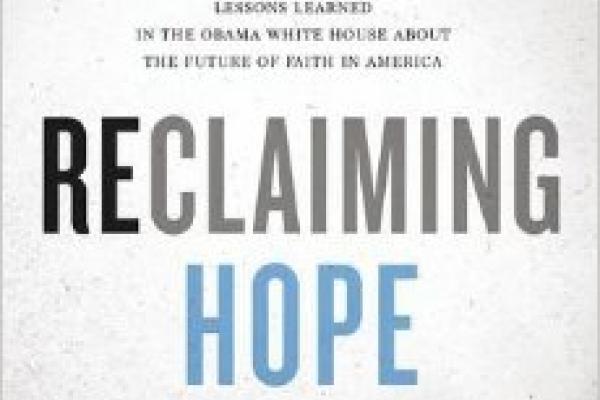THIS IS A PRE-TRUMP book with serious questions for our politics in the age of Trump.
A political memoir from Michael Wear, a young evangelical strategist who worked in Obama’s faith office, it tells stories from the fights of those years and offers a vision of a future faith-in-politics.
I’m a sucker for this kind of memoir: a chastened idealist tells how people worked well together. His ideals have met reality, but Wear still believes politics can help people.
More than merely telling old war stories, Reclaiming Hope makes a sustained case for public service. It argues well that Christian love should motivate us to become active within existing political institutions. Wear highlights specifically race and religious freedom as fields needing further work (a great combination, designed to irritate people all across the ideological spectrum). We need to figure out how to live together and build cultures that respect people and enable them to live without fear.
Although Wear avoids cynicism (and criticizing his former coworkers), his time in high-level politics did chasten him. His reflections on the contentious religious issues raised during his Obama administration tenure, particularly abortion, the contraception mandate, and marriage equality, although only comprising a portion of the book, raise necessary questions for any local or national progressive coalition.
We need to ask ourselves how much ideological conformity is necessary to work together. Can we rest in calling for abortion to be “safe, legal, and rare?” How flexible can we be in seeking to advance policy priorities? Sometimes the appropriate response is not flexibility, but Wear argues that we need to be fundamentally open to diversity in coalitions as we work for policy in a pluralistic society.
To particularize these broad questions: Was Obama’s “evolution” on marriage equality disingenuous? Some of the president’s advisers claim that Obama shifted his opinion back in 2007. As Wear reports, Obama’s vision of marriage was a live question during his 2008 campaign. Obviously, it isn’t wrong to change your mind. The question remains whether Obama was engaging in what Wear calls “political gamesmanship” by not being forthcoming about his true beliefs during the campaign. If so, it becomes even more difficult for theologically conservative folks to trust liberal assurances.
Regardless of difficult questions he raises, Wear’s stories are encouraging. He remains hopeful that politicians and policy wonks can collaborate to improve life for millions.
I appreciate Wear’s desire to build coalitions and work across party lines. As he notes, in our current system this is becoming increasingly difficult because few partisans are willing to build coalitions. To speak bluntly—Republicans don’t need Democratic support on a federal level since the party controls both chambers of Congress and the executive branch, and Democrats aren’t inclined to play nicely with people they see as holding increasingly extreme ideological views.
How does bipartisanship work in this setting? I hope we can figure it out and that the progressive movement shows itself willing to build coalitions with those holding a range of social perspectives, rather than insisting on a limited orthodoxy with its partners.
Though this is a pre-Trump book, we need a politics that accounts for Trump to move forward. The questions that Wear asks are key to building broad coalitions, and his stories give us hope that these kinds of coalitions are possible. All sorts of groups and allies are needed to fight resurgent racism and other movements seeking to return to an era of hegemonic patriarchal control.
Wear’s closing charge is more necessary than ever before: “There is truly no place for fear or anxiety about the future. ... Rather we need to act.”

Got something to say about what you're reading? We value your feedback!

